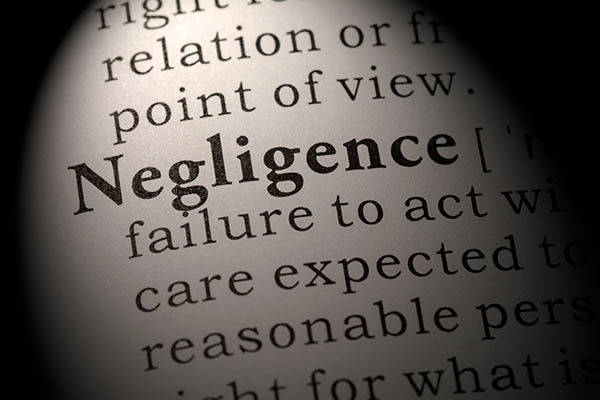
What are the differences between civil and criminal negligence, and how professional indemnity insurance can help
Posted on 27th September 2022 by Phil Ainley

If someone accuses you of being negligent, it doesn’t feel very nice, and it is a term that can sometimes be used when it isn’t appropriate, so it’s important to understand its meaning.
We also look at the differences between civil negligence and criminal negligence and how professional indemnity insurance might be able to help.
What is negligence?
Negligence is defined as ‘the fact of not giving enough care or attention to someone or something’ (1).
In the online legal dictionary, the classification describes negligence as ‘Conduct that falls below the standards of behavior established by law for the protection of others against unreasonable risk of harm’ (2).
We look at the two key types of negligence – civil negligence and criminal negligence – to help you understand the differences.
What is civil negligence?
Civil negligence is a breach of a duty to care. Anyone who is found guilty of civil negligence is deemed to have not acted in the way a reasonable person would in the same circumstances. The negligent act must result in an injury or loss for there to be a claim. Civil negligence often falls under tort laws (3).
In English tort law, a tort is a civil wrong by the ‘tortfeasor’ which unfairly results in a loss or harm to another person. The tortfeasor becomes liable to the other person (4).
Some examples of civil negligence could include:
- A department store is hosting a Black Friday sales event featuring huge discounts on many products. Black Friday has typically seen hoards of bargain hunters queue for hours to enter stores first so they don’t miss out on the bargains on offer. If the store doesn’t ensure there is adequate security to control the crowds, then the store could be considered as negligent if shoppers get hurt.
- A driver, whether it be of a car, motorbike, or bicycle, who runs a red light or stop sign and who causes and accident that harms another person can be considered negligent.
- A crossover between negligence and public liability could be a restaurant or café where food or drink has been spilled on the floor. If the spillage hasn’t been properly cleaned up, the restaurant / café could be deemed as negligent if an accident occurs that causes an injury.
- In another crossover between negligence and product liability, a manufacturer of a product that is defective and harms a person using it could be held liable for civil negligence.
What is criminal negligence?
Criminal negligence occurs when one person puts others at risk because they fail to exercise a reasonable standard of care. Criminal negligence claims are issued by the law enforcement authorities and for someone to be criminally negligent they have to be aware that their behaviour causes an unjustified risk to another that represents and shockingly bad deviation from an appropriate standard of care.
Some examples of criminal negligence could include:
- A reckless driver who exceeds the speed limit by 30+ miles an hour, and who causes an accident, would likely be charged with criminal negligence. Similarly, a driver who is texting whilst driving who causes an accident is also likely to face a criminal negligence charge.
- Continuing with the driving theme, anyone who drives under the influence of alcohol or drugs, who injures another person or themselves in a crash, could be charged with criminal negligence.
- A parent who leaves a toddler at home alone so they can go out and enjoy a good time at a restaurant could face charges of criminal negligence.
- A pet owner of a dangerous dog who chooses to let their animal of it’s lead in a public park, could face a criminal negligence charge if the dog attacks someone.
Key differences between civil vs criminal negligence
The key difference between civil negligence and criminal negligence is that civil negligence can occur due to human error, a simple mistake. Typically a civil negligence lawsuit will involve the plaintiff having to pay compensation to the claimant.
Criminal negligence involves the person accuses being aware that what they were doing was wrong and that it could put someone else in danger. Someone who is accused of criminal negligence can face probation, or even a term in jail.
In short, negligence comes down to people understanding the difference between right and wrong.
How can professional indemnity insurance help with negligence claims?
Professional indemnity insurance (PI) provides cover for civil negligence claims. The policy will provide cover for legal fees and compensation awards if a professional negligence claim is made against your business. For those business professionals who work in health, beauty and wellness, the consequences of negligence will likely be very different to those of a marketing consultant or graphic designer.
Therefore, it is important that you ensure you have correct type of PI insurance, at an adequate level for your profession or to meet a contract.
[Click here to get a quick online quote for your PI insurance]
Sources:
- https://dictionary.cambridge.org/dictionary/english/negligence
- https://legal-dictionary.thefreedictionary.com/negligence
- https://www.mylawquestions.com/what-is-civil-negligence.htm
- https://www.inbrief.co.uk/claim-preparations/the-law-of-tort/
https://examples.yourdictionary.com/examples-of-negligence.html
